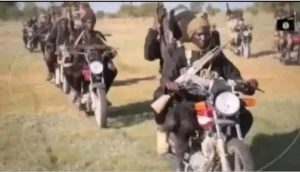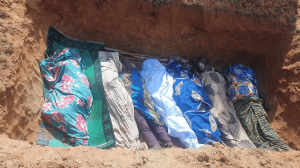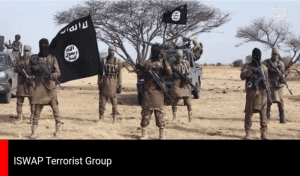By Pastor Sam Jones
On Easter Sunday, the people of Billiri, Nigeria, gathered as they have for generations—singing hymns in the early light of dawn, celebrating the risen Christ. Children trailed behind parents, elders leaned on walking sticks, and the streets filled with joy and reverence. But by 7 a.m., joy turned to horror. A trailer truck, loaded with grain, drove straight through the procession, killing five and injuring over thirty more. The scene quickly descended into chaos: screams, sirens, bodies, blood.
The official story? Brake failure.
But eyewitnesses in Billiri—those who bled, those who buried their loved ones—tell a different tale. The truck, they say, approached slowly, then suddenly accelerated. Survivors claim they waved, shouted, begged the driver to stop. He didn’t honk. He didn’t slow. He drove directly into them. Then, just as suddenly, he stopped—mere meters after the attack. One local put it bluntly: “That’s not a vehicle with failed brakes. That’s someone who knew what he was doing.”
What happened in Billiri is being swept into the familiar file labeled “accident.” The bodies are being buried, but the truth is not being exhumed. This isn’t the first time a Christian gathering in Gombe State has been hit like this. It’s not even the second. In 2019, ten children from the Boys’ Brigade were killed during an Easter procession. In December of 2024, a truck rammed a Christmas crowd, injuring over twenty.
These are not isolated incidents. They are coordinated patterns—at best enabled by negligence, and at worst carried out with deliberate intent. When a government knows the dates, knows the locations, and fails to redirect traffic or provide any meaningful security, they are not passive observers. They are active enablers.
Some might bristle at the suggestion that this was anything more than a tragic accident. But why is it that only Christian processions seem to suffer these kinds of “accidents”? Why do trucks only lose their brakes on Easter morning or during Christmas processions? Why are there never arrests with real consequences? Why do officials show up with sound bites and empty condolences but no answers?
When the dust settles, we are left with two possibilities: either these attacks are intentional or the result of criminal negligence. Both demand answers. Both demand accountability. But year after year, Christian blood is spilled, and the State offers only delay, denial, and dishonor.
The people of Billiri know this. That’s why angry youths set the truck ablaze and stormed the police station. That’s why protestors were met with tear gas, not compassion. That’s why eight young men were arrested—not for killing innocents, but for daring to grieve too loudly.
Meanwhile, the local hospital was so under-resourced that it couldn’t even provide trauma care. A senator had to pay for emergency supplies out of pocket. This wasn’t just a failure of brakes. It was a failure of governance, of policing, of healthcare, and most of all—a failure of justice.
And if we’re being honest, it’s also a failure of moral clarity.
When a society begins to tolerate the routine killing of Christians—whether by omission or commission—it reveals something damning: that certain lives are cheaper than others. That some can die without consequence. That there is no equal protection, no equal outrage, and no equal value under the law.
The people of Billiri deserve better. The Church in Nigeria deserves better. But perhaps the greater tragedy is that you probably didn’t even hear about this.
Five Christians killed in a worship procession. Thirty more wounded. And yet, the West barely blinked.
Where are the headlines? Where are the vigils? Where are the outcries from those who speak so easily of “justice” and “human rights”?
It seems that Christian blood shed quietly does not fit neatly into the narratives of the modern world. It is an uncomfortable truth: that in an age obsessed with “justice,” the martyrs of Nigeria are treated as a minor inconvenience.
The truth is that our brothers and sisters are being slaughtered for their faith—and the world looks away.
We must not.
The Billiri Easter Massacre demands our attention. It demands our prayers. It demands our voices. If the Church in the West remains silent while the Church in Nigeria bleeds, we are complicit in their abandonment.
Their fight is our fight. Their cross is our cross. And their suffering must not be buried alongside them in anonymous graves.







